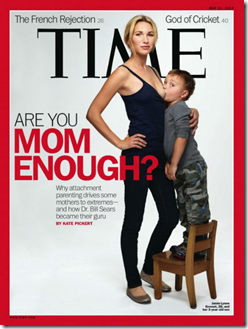Matthew Dicks's Blog, page 537
June 2, 2012
Stop trying to monopolize the angst, ladies.
Allison Winn Scotch, in a piece in Psychology Today entitled Balancing Motherhood and Career, writes:
And herein lies the catch that so many women wrestle with: we want lives with our children, but we want lives outside of them too. And sure, we were told that we can have it all, but maybe the truth is that we can only have bits of it at time or if we do have it all, it doesn’t mean that we’re going to be happy all the time. Maybe that’s really it. You can work and you can be a full-time mom and you can deal with the pressures and stresses of each. But you can expect that all of this is going to be easy or necessarily enjoyable. But what if I’m at the age when I want it to be enjoyable? Is that childish or actually enlightened? What if I want to say screw you, stress, I’m going to go make brownies for the bake sale with my kids and not care! Okay, actually, I’m never going to be that mom who makes homemade brownies, so I’ll toss that idea out right now, but still. It would be nice to know that I could if I wanted to.
My question is this:
Why does Winn Scott characterize this as a problem that mothers wrestle with? How is this struggle any different for a father?
Because it’s not. Fathers deal with these same pressures and want the same things as mothers. We want successful careers and the opportunity to be full-time fathers, and yes, we too would like this process to be easy and enjoyable.
I don’t know a single father who doesn’t feel this way.
So I ask:
Why is the “we want it all” conundrum so often characterized as a mother’s problem when fathers feel the same?
June 1, 2012
Statistically speaking, am I the best husband and father of all time? And should I make my wife aware of these favorable numbers?
From a recent Wall Street Journal piece entitled Are Dads the New Moms? :
A recent U.S. Census Bureau report found that 32% of fathers with working wives routinely care for their children under age 15, up from 26% in 2002.
A few thoughts on this statistic:
What the hell are the other 68% of fathers doing? Am I really supposed to believe that in the majority of these homes, both parents are working but only the mother is routinely caring for the children?
What do these same statistics look like for husbands whose wives aren’t working? If only 32% of fathers with working wives routinely care for their children, I can’t imagine what the number might be when the wife’s primary role is child care.
Does golf play a role in these statistics, because if that’s the case, it’s slightly more understandable.
Could I be one of the only working fathers with a non-working wife who routinely cares for his children?
Does my wife know how lucky she is to have one of the few fathers who routinely cares for his children?
Most important, how often can I remind her of this fact without turning this positive into a negative?
May 31, 2012
What’s in a name? Several literary references.
It’s a boy!
In case you haven’t heard, my wife gave birth to a beautiful baby boy yesterday named Charles Wallace Dicks.
Charlie was born at 3:09 PM. He is 7 pounds, 1 ounce and 18 inches long.
We chose Charlie’s name for a number of reasons.
To start, we liked the name Charles a lot. We liked the old feel of the name and the way it seems to match well with his big sister’s name (Clara). I’m also an enormous fan of Charles Dickens (I have three plants in my classroom named Pip, Philip and Pirrip), so the connection to this literary giant didn’t hurt.
We also love the nickname Charlie. My favorite moment during Charlie’s delivery happened just seconds after Charlie was born. With The Byrd’s Turn Turn Turn playing in the background, a nurse asked us what his name was, and Elysha called out, “Charlie!” When I heard her say his name aloud, in what I can only characterize as the most beautiful singsong voice I have ever heard, I knew we had chosen the right one.
It was one of those moments I will never forget.
As for the Wallace, a couple literary thoughts guided our decision.
First, Charles Wallace is the protagonist in Madeleine L’Engle’s WRINKLE IN TIME series, which are books that Elysha and I both adored as children. In fact, I had recently expressed hesitancy in re-reading the books as an adult, in fear that they won’t hold up to my fond memoires of them, but I guess I have no choice now.
Elysha and I are also fans of the poet Wallace Stevens, who lived and worked in Hartford, the city where Charlie was born. We especially love the poem 13 Ways to Look at a Blackbird and have taught it to our students every year. Every year, I discover new depth hidden within the poem, and I hope I can say the same about my son someday.
Our perfect little boy, Charles “Charlie” Wallace Dicks!
May 30, 2012
My career as a professional best man is hindered only by a lack of teleportation
I had a third person inquire about hiring me as a professional best man this week. Unlike the first two, this potential client lives within the United States but on the west coast, making it impossible to serve the duties of the office faithfully.
When I first proposed the idea of a professional best man less than a year ago, I never thought for a moment that someone might take me up on my offer.
Now I’ve had three people serious about hiring me.
It’s another reminder of the importance of putting yourself out there.
I suspect that working women are more mentally tough than Barbara Walters believes
Barbara Walters had this to say about the recent TIME magazine cover:
“This is such a guilt trip for working women.”
Is it naïve of me to suggest that Barbara recall the words of the great Eleanor Roosevelt:
“No one can make you feel inferior without your consent.”
May 29, 2012
Exposing the lunatic Little League coaches for who they really are.
Here’s an idea I’m considering:
Write a blog that examines the youth baseball culture in my town and/or neighboring towns, with specific emphasis on assessing and critiquing the coaching style and the overall effectiveness and efficacy of the adults involved.
It’s recently come to my attention that although most of the coaches and parent volunteers involved in these organized baseball leagues are skillful at their jobs, a small percentage of coaches should not be working with young people. These are the coaches who take their team’s win-loss record personally and treat this childhood game as if it were their own version of professional ball. They are the screamers and the demeanors, the men who believe that a child will hit a ball more frequently and farther if he or she is made to feel rotten about each and every strike out.
It occurred to me that parents might want to know who these coaches are. They may want to know which coach berates his players on a regular basis and which coach circumvents the league rules in order to play only his best players in the playoffs.
Apparently there are also a number of backroom deals taking place at the beginning of each season that allows for certain teams to be stocked with the league’s best players year after year while other teams are comprised almost exclusively of less inexperienced, less effective ballplayers.
Not only would this be good information for parents to possess before deciding if their child should join a league or team, but I would love the opportunity to explore the motives behind a man who is willing to manipulate the system in order to ensure that his team of twelve-year old boys competes for the championship each year.
I’d also very much like to expose these jerks for who they really are.
But is this something that parents would bother to read before deciding upon leagues and teams?
While I’m at it, I might also want to address the behavior of umpires working in these leagues, at least if the umpire in the video below in any indication of the kind of men umpiring Little League games. If it were my son who had just struck out and been greeted by this umpire’s third strike call, it would’ve taken all my self control to not walk over to home plate and punch the guy in the face.
Fostering disobedience
My three-year old daughter, Clara, and her younger friend, Ella were playing upstairs while the adults were chatting downstairs. I was sitting at the top of the staircase, listening to ensure that neither of the kids jumped out a window or set their underwear on fire.
My daughter asked Ella to take off her shoes so she could jump on the bed with her.
“My mommy said I have to leave my shoes on,” Ella said.
“But your mommy isn’t here,” Clara replied. “You can take them off.”
I couldn’t believe it. Mt daughter was attempting to corrupt someone younger then her.
I was both horrified and a little proud of my little girl in that moment.
May 28, 2012
Existential solution
I’m not sure where this bit of dialogue originates. I saw it posted on Twitter and immediately fell in love with it.
It encapsulates an enormous part of my life philosophy perfectly:
“Life is too short,” she complained, “I want more.”
He grinned, “Wake up earlier.
May 27, 2012
Plants have a sense of smell. A SENSE OF SMELL, PEOPLE! This brings them one step closer to chickens and cows and pigs.
I have always secretly hoped that someday we would discover that plants are just as sentient as animals, and as a result, all the ethical vegans of the world would be forced to come to terms with the fact that when it comes to food, they are no less murderous than cow and chicken eating people like me.
With the remarkable discovery that plants have a sense of smell, we have taken an enormous step in that sentient direction.
Brace yourself, my vegan friends, We may soon discover that plants are capable of playing chess and debating the merits of a Parliamentary government.
May 26, 2012
Will she be asking to meet for coffee next?
As I kissed my daughter goodnight and exited the bedroom, my wife offered to sing her customary song before following me downstairs.
“No, Mommy,” Clara said. “No song. Let’s talk.”
“You want to talk?” Elysha asked, unsure if she had heard correctly.
“Talk to me for a while, Mommy,” my three year old requested.
Did my daughter just take her first tiny step toward womanhood?











